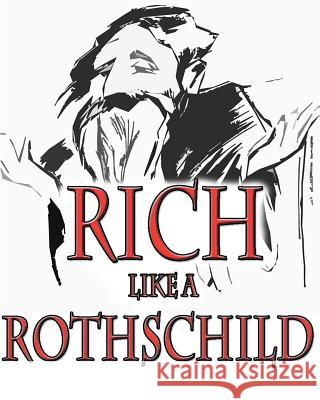Rich like a Rothschild » książka
Rich like a Rothschild
ISBN-13: 9780983906209 / Angielski / Miękka / 2012 / 150 str.
"Rich like a Rothschild" asks Jews what they would do if they were as rich as Baron Rothschild, the legendary financier whose daughters took piano lessons from Frederic Chopin. I first read the Polish version of this book in Warsaw. It was the first collection of Jewish humor printed in democratic Poland since the collapse of Communism in 1989. Jews were persecuted in Europe for centuries. Many fled to Poland, where they found freedom of worship. By 1850, more than three quarters of all Jews in the world lived inside the borders of old Poland (before it had been partitioned between Russia, Prussia and Austria). In some communities the dominant language was Yiddish. While preserving their own traditions, Polish Jews enriched the cultures of the world with great scholars, writers, and musicians such as Artur Rubinstein and Wanda Landowska. Many Polish Jews settled in the United States of America. Hitler's Nazi Germany destroyed Poland's Jewish culture almost completely, and now only a few fragments remain. Yet, we are witnessing a revival of interest in that culture. A major Museum is being created, groups are forming for joint studies, Jewish schools are opening, and traditional Jewish restaurants are popular. Christian Poles and visitors from abroad are learning Hebrew, playing klezmer music, and studying Jewish culture. Jewish humor is a bridge to the past. These jokes, dating to 19th century Tsarist Russia, may be the only Polish collection so far to be translated into English. Jewish humor was always popular in Poland and throughout the world, because it's sharp wit is softened by warmth and wisdom. It makes us laugh while it reminds us that life has dangers which call for faith and spirit to survive another day. It makes fun of religion and free-thinking, oppression and survival, poverty and riches, war and marriage, and it does so without anger or malice. The world needs more of that. Jewish humor reflects the soul of Jewish people with their long history, religion and traditions. It varies with the societies in which they lived. And that is why the humor of Jews in Poland is special. This book evokes a society of people killed only because they were who they were, Polish Jews. They were murdered in Nazi death camps, and their ashes were dumped into unnamed pits. Yet, we deny the Holocaust a total victory over these victims when we remember them. Their humor is the perfect monument to their memory. It confirms their decision to remain Jews even when they were exiled from their country. It shows their loyalty to their laws and religion, their intelligence, their skills in business, their education, frugality and generosity. We see that they lived worthy lives, full of hope, even in times of injustice and oppression.











